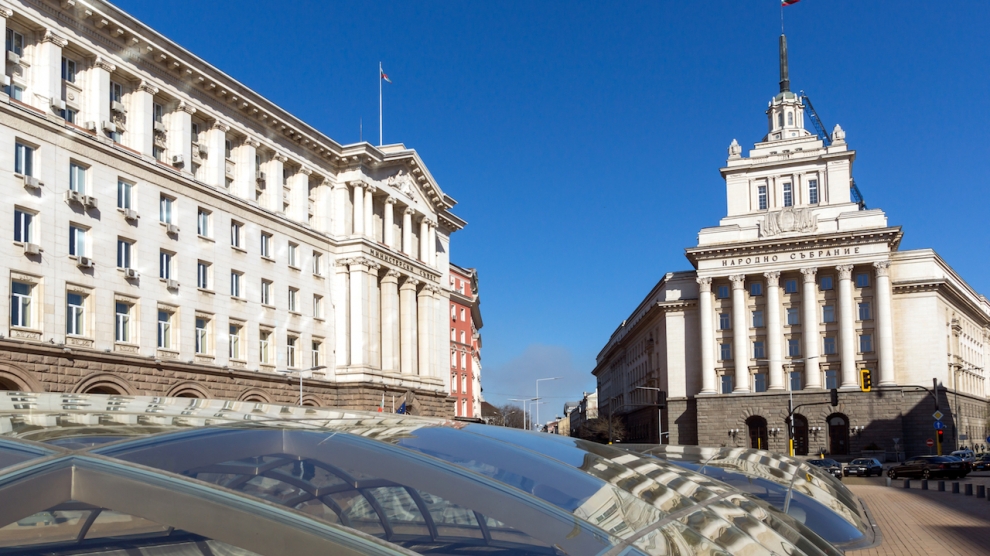Bulgaria is still the poorest EU member state, although its GDP is now around 50 per cent of the Bloc’s average, while it was only 25 per cent back in 2000. The country has a rather dynamic and often turbulent political life, but its democracy is more pluralistic and less polarised than Hungary and Poland. In a rather competitive environment, one party – the centre-right GERB — and its leader Boyko Borissov have dominated the political scene over the last ten years. They emerged as the biggest party faction in the National Assembly after the latest parliamentary elections in March. On May 4, the third Borissov government was sworn in.
The new coalition government — composed of GERB and the national-populist “United Patriots” — stands a good chance of “surviving” until the end of the upcoming Bulgarian presidency of the Council of the EU (January-June 2018). After that there may be reshuffles or even pre-term elections. For the time however, the self-styled “patriots” will most probably be content to play the role of a disciplined junior coalition partner, since the participation of national-populists with government ministers is unprecedented for Bulgaria, and raises their political profile.
In order to make their inclusion more palatable, the “patriots” have dropped most of their nationalist-populist rhetoric and (for now) are apparently willing to toe a pro-European political line. The question is whether, or when, this willingness will begin to wear thin. A possible negative turn of events for the EU (a worsening of some of the ongoing crises — immigration and the Eurozone) may lead to “patriots” emboldening. If the EU stays strong, at least in the format of 27 states, such a development is less likely. In other words, there is some possibility of an Orbanisation of Bulgaria (since there are populist tendencies in GERB and Borissov as well) or a split in the coalition, but at present this possibility seems rather remote.
Krasimir Karakachanov — apart from being a former communist services agent — has been a vocal critic of the West, in general. He is the minister of defence in the new government, and for this reason, is currently very careful not to voice his former radical positions. Volen Siderov – another leader of the “patriots” – was so outspoken in his anti-EU and pro-Russian statements that it was virtually impossible to include him in the government: he will be just an MP. The third leader — Valery Simeonov — made it to the position of deputy PM although he was embroiled in a rather nasty scandal, during the campaign, where he attempted to physically block the Bulgarian border in order to prevent the Bulgarian Turks, residing in Turkey, from voting.
Indeed, in the programme of the new government there are no Euro-sceptics or anti-NATO policies or language. But the issue of trust between the EU and NATO partners, and Bulgaria will be on the table and the “patriots’ will have to put serious efforts into overcoming their own legacy.
During its ten years of EU membership Bulgaria has been unable to shake off its reputation as a corrupt country. The new government is unlikely to improve the situation. After years of “judicial” and “anticorruption” reforms there are still glaring problems on this front. For instance, in a recent major scandal the Supreme Judicial Council refused a request to investigate an alleged abuse of power by the prosecutor general. The main parties in the country did not take a position on the issue, which means that they find the status quo acceptable. Tsetska Tsatcheva — the former speaker of the parliament — will be the next minister of justice. She has never been seen as a strong proponent of a judicial reform.
Although the new government has declared its strong pro-EU position, there is a degree of ambiguity regarding its stance towards Russian-sponsored energy projects. Although the project for a nuclear power plant “Belene” is not in the programme of the new government, this does not necessarily mean that the project is finally over. The same ambiguity exists regarding another Russian energy interests: the so-called “gas hub”, a project designed to replace the “South Stream” gas pipeline.
Overall, Bulgaria has made serious social and economic progress as an EU member, but still has not taken a full advantage of all the opportunities. It continues to lag behind not only the core EU countries but also Central Europe and (recently) Romania. This suggests that there is still significant potential for development, if committed and reform-oriented governments are in power.
_______________
The views expressed in this opinion editorial are the author’s own and do not necessarily reflect Emerging Europe’s editorial policy.






Add Comment